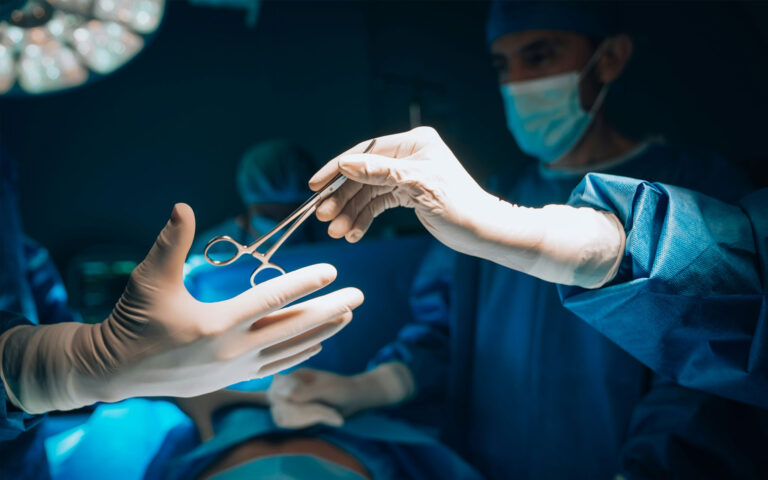Living with endometriosis or adenomyosis doesn’t just affect the reproductive system — it impacts the whole body, and for many, digestive health is one of the hardest-hit areas.
Bloating, constipation, diarrhoea, nausea, and gut pain are often part of the daily reality. Some people are told for years that they “just have IBS” before finally discovering the underlying cause: Endometriosis.
Endometriosis: More Than a Reproductive Disease
Endometriosis has been documented on every organ in the body — not just the uterus or ovaries. Lesions have been found on the bowels, bladder, diaphragm, lungs, liver, spleen, eyes, fingertips, nails, and even the navel.
This makes it clear: endometriosis is a full-body inflammatory disease.
When it affects the digestive tract, symptoms can mimic IBS or Crohn’s disease, leading to years of misdiagnosis.
Why this matters:
- Lesions outside the pelvis can imitate other diseases, delaying accurate diagnosis.
- Bowel involvement can cause severe constipation, diarrhoea, or alternating patterns that don’t improve with standard IBS treatments.
Why People with Endometriosis Often Have IBS-Like Symptoms
The gut and reproductive system are closely connected through the gut-brain axis, nerves, and hormones. Endometriosis-related inflammation, scarring, and hormonal fluctuations can trigger digestive dysfunction.
Many with endo are misdiagnosed with IBS before their true condition is found. But there’s another important fact: Years of untreated or severe endometriosis can permanently affect bowel function.
Chronic inflammation, adhesions, and pain can make the intestines sluggish, leading to severe, chronic IBS and constipation — even after excision surgery.
How endo causes bowel symptoms:
- Inflammation – triggers hypersensitivity and slows motility
- Hormonal changes – alter stool consistency and gut movement
- Adhesions and scarring – physically restrict or twist the intestines
- Nerve disruption – interferes with normal bowel regulation
- Long-term sluggishness – a result of years of unmanaged disease
What is Bowel Endometriosis?
Bowel endometriosis occurs when lesions grow:
- On the bowel’s outer surface (superficial bowel endo)
- Inside the bowel wall (deep infiltrating bowel endo)
- In the recto vaginal septum (between the rectum and vagina)
Common symptoms:
- Rectal pain during periods or bowel movements
- Alternating diarrhoea and constipation
- Pain during deep penetration or sex
- Feeling of incomplete evacuation after bowel movements
- Rarely, rectal bleeding or mucus in stool if the bowel wall is affected
Constipation & Endometriosis: The Hidden Link
Why it happens:
- Inflammation slows digestion
- Pelvic floor dysfunction makes passing stool difficult
- Adhesions restrict bowel movement
- Nerve dysfunction affects motility
This is not “just period constipation” — it can be a debilitating and chronic issue.
Why Some Experience Diarrhoea Instead
For others, diarrhoea is more common. Triggers include:
- Inflammation irritating the gut lining
- Prostaglandins released during periods speeding up contractions
- Immune dysfunction
- Food intolerances and gut bacteria imbalances
Many switch between constipation and diarrhea, mimicking IBS.
Food Triggers & Gut Health
Some common triggers for endo-related gut flares:
- Gluten & dairy – may worsen inflammation
- High-FODMAP foods – fermentable carbs that cause bloating
- Caffeine & alcohol – irritate the gut
- Sugar & processed foods – disrupt gut bacteria
Not all triggers affect everyone — tracking symptoms and trying elimination diets can help.
Managing Bowel Symptoms in Endometriosis
Supportive strategies include:
- Excision surgery – the gold standard for bowel endo removal
- Pelvic floor therapy – improves muscle relaxation and function
- Balanced hydration & fibre – avoid extremes that worsen bloating
- Anti-inflammatory diet – whole, minimally processed foods
- Probiotics & gut support – to restore healthy bacteria
Remember: gut care is important, but treating the root cause — endometriosis — is essential.
IBS or Endometriosis?
Why misdiagnosis happens:
- Both share similar symptoms
- Endo bowel pain often worsens with periods, while IBS is more food/stress-related
- If hormonal treatment helps, IBS alone is unlikely
- Lack of response to IBS treatment should prompt investigation for endo
Key Takeaways
- Endometriosis is a full-body condition that can affect every organ — including the bowels.
- Bowel endometriosis can mimic IBS, delaying diagnosis for years.
- Chronic untreated endo can cause lasting IBS and constipation due to intestinal sluggishness.
- Proper excision surgery with a trained, experienced excision surgeon and multidisciplinary care are key for relief.
Photo by Ardalan Hamedani on Unsplash



